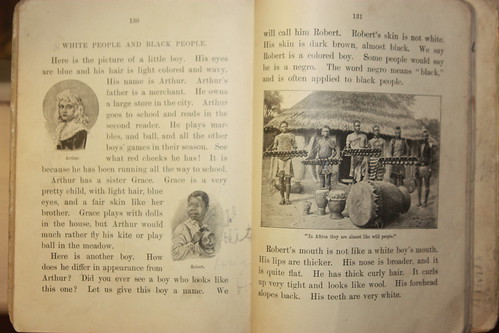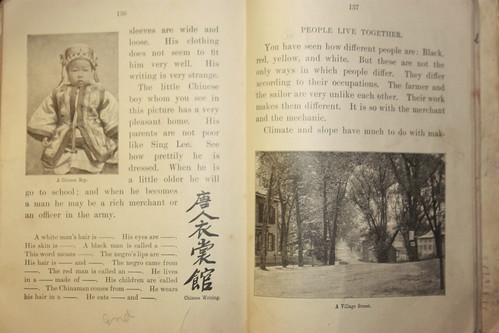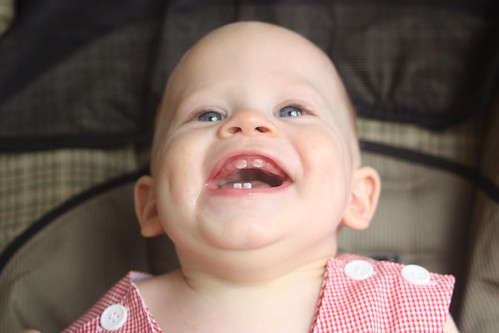The Intellectual Property Caucus at CCCC was quite productive this year, as always. Thirty-one people attended, and we started the meeting off by plugging our projects and celebrating the year's accomplishments when it came to intellectual property issues:
First, there's the publication of Stephen Westbrook's collection Composition and Copyright: Perspectives on Teaching, Text-making, and Fair Use . Also, Charlie Lowe and Pavel Zemliansky have created Writing Spaces, an open access, Creative Commons licensed space that can be used in lieu of a textbook (or in addition to one). Then, following our usual format for the meeting, we heard from the Intellectual Property Committee. The big news there was that we've been invited to write a regular feature for the NCTE Inbox, and Martine Courant Rife volunteered to spearhead that effort. (By the way, if you click the link, you'll see that you CAN subscribe to the Inbox on RSS. That was at issue during the meeting.)
Then we introduced our action tables, met for our breakout sessions, and reconvened to plan actions for the next year. For the purposes of the notes here, I am going to paste the abstract submitted by the action table leader, then right below it put my notes from that action table's report. The notes are notes I took during their reports in the caucus meeting, and since I didn't sit in on these discussions, they're kind of choppy and note-y. And as always, some of the action tables ended up merging, so what I have here isn't exactly what was in the original proposal re action tables.
Exposing Misunderstanding of Fair Use in the Case of the Harry Potter Lexicon
It's disappointing that Steve Vander Ark's proposed HARRY POTTER LEXICON
is coming under fire from Potter creator J. K. Rowling. However, the
attacks on the lexicon from the general public---visible in comments on
news stories and weblogs---are far more disturbing. Vander Ark has been
called a plagiarist, a thief, a crook, and a liar. The lack of support
for his work shows a profound misunderstanding of fair use Speaker #1
wishes to engage in two ways: (a) by sharing strategies for discussion
of fair use; (b) through encouragement of use of the rights all of us
have to create similar works which fairly use copyrighted content.
Notes and Next Actions:
different kinds of misunderstandings of fair use:
1. partial knowledge: some knowledge but misapply it
2. conflating legal and ethical issues: plagiarism of something in the public domain: ethically problematic but legally OK
3. ppl not knowing who to appeal to, governing bodies relevant. vague notions of punishment but not knowing where auth lies
4. misunderstanding of terminology
5. not understanding purpose of fair use
action items: fair use for dummies document
list of common misconceptions for teachers
more formal study: look @ court cases
Copyright, Fair Use, and Digital Delivery of Class Reading Materials
A recent lawsuit brought by a group of academic publishers against
Georgia State University has brought to our attention the dangers of
limiting educators’ Fair Use rights to distribute class reading
materials in digital form (Cambridge University Press et al. v.
Georgia State University). Speakers #2, 3, and 4 will discuss what’s
at stake in the recent debate over application of the Fair Use
exemption to the use of copyrighted works in coursepacks, library
e-reserves, and other forms of online delivery of reading material to
students. They will then take comments that may contribute to the
development of a position statement, directed to academic publishers,
that would encourage a rethinking of the current business model for
copyright permissions for educational use.
Notes and Next Actions:
concerns: for education: what can we do, what can't we do when it comes to digital delivery of online materials
article in CCC in 1998 on fair use. "Use Your Fair Use: Strategies toward Action." 2009
reissuing of article like that in light of course packs, ereserves, etc.
advocacy issues: 4Cs position statement would make a stronger claim re fair use guidelines and digital materials
georgia state case: intervention? 4Cs could begin exploring/supporting defendants in that case?
4Cs educate organization. american library assn. web site. write to house judiciary cmte regarding that decision. action letter. NIH, but implications for government sponsorship of research.
listservs: request to write
Open Access Publishing and Institutional Repositories
Speaker #5 will report on the progress of an OA Task Force that has
been brought together to educate CCCC/NCTE constituencies about OA
options and about mandates to provide open access to federally funded
research, as well as to develop guidelines for meeting those mandates.
Okay, this is the action table I participated in, so I can give a more thorough treatment of it. Most of our discussion was about the following:
Open Access and "The Extended CCC"
As has been discussed on the blogs, notably here and here, a lot of people aren't happy with the recent decision to move some of College Composition and Communication's features, such as review essays, interchanges, re/visions, book reviews, etc. online. My main concern is the open-access implications of that, which Karen Lunsford and I discussed in our action table meeting. For example, if I want to read "Rhetorics of Critical Writing: Implications for Graduate Writing Instruction" by Laura R. Micciche, a review essay in the most recent issue, I have to go here and click the title, then if I'm not logged in with my NCTE member number (which I pay an annual fee for), I get the following:
Please log in to view this journal PDF file: /library/NCTEFiles/Resources/Journals/CCC/0603-feb09/CCC0603ReviewRhetorics.pdf.
What are the implications for future access to this article, only the first paragraph of which will be in the print journal? Libraries, and by extension teachers and students, who already pay a subscription fee for the print and electronic versions of the journal, will not have access to these features unless they pay to join NCTE. Our action item regarding this issue is to query the Executive Committee: what provision has been made for permanent access to TECCC for libraries? The caucus members generally felt that this was the most alarming and pressing issue related to our field and open access.
We also talked about other issues, though, such as:
1. a letter to the executive committee recommending changes to NCTE's journals' copyright policy:
* change the contract to allow authors self-archiving of copies of their articles on their personal web sites
* allow open access to archives the way that JAC does
2. writing a resolution draft about open access -- open scholarship, open teaching materials, maybe even open access textbooks, but we thought that since many in our field write textbooks and textbook publishing houses give us a lot of support, we might have more buy-in with 4cs membership if we leave textbooks out of it and just focus on research
3. joining the Alliance for Taxpayer Access
Students' Rights and Responsibilities in IP
Students are facing more choices for how to treat their own
intellectual products and those of others. It would be helpful for
both instructors and their students to be aware of the legal, ethical,
and cultural ramifications of those choices. Speaker #6 will examine
students' rights in and responsibilities for treating their work
within the realm of intellectual property law issues.
students thinking of themselves as AUTHORS. plagiarism guidelines...turnitin.com
if teachers aren't allowed to use it, they'd be forced to teach plagiarism in more complexity
let students opt in or opt out?
teachers don't have the right to use student writing in college english -- would have to get permission.
in what ways does turnitin repurpose student writing?
NCTE Inbox: we wish there was a simple way to teach teachers to talk about turnitin
ways other professors use the service?
something more user-friendly for NCTE K-12 and college
conversations with students about the business model
for paraphrasing exercises in class, ok use of turnitin
There was also an impromptu action table about research projects in IP. Here are my notes on that:
1998 Computers & Composition special issue on IP: plan to revisit that in a new special issue.
cultural cannibalism: CFP out before C&W
visual/digital rhetorics for kairos
CCCC panel together next year
sharing scholarship, continuing projexts: regular discussion table each year on research, momentum.
1/2 hour for everyone about research?
call out on lists: course materials about authorship, plagiarism, copyright, collaboration, contract negotiation, OA, OS, free speech/privacy/censorship








